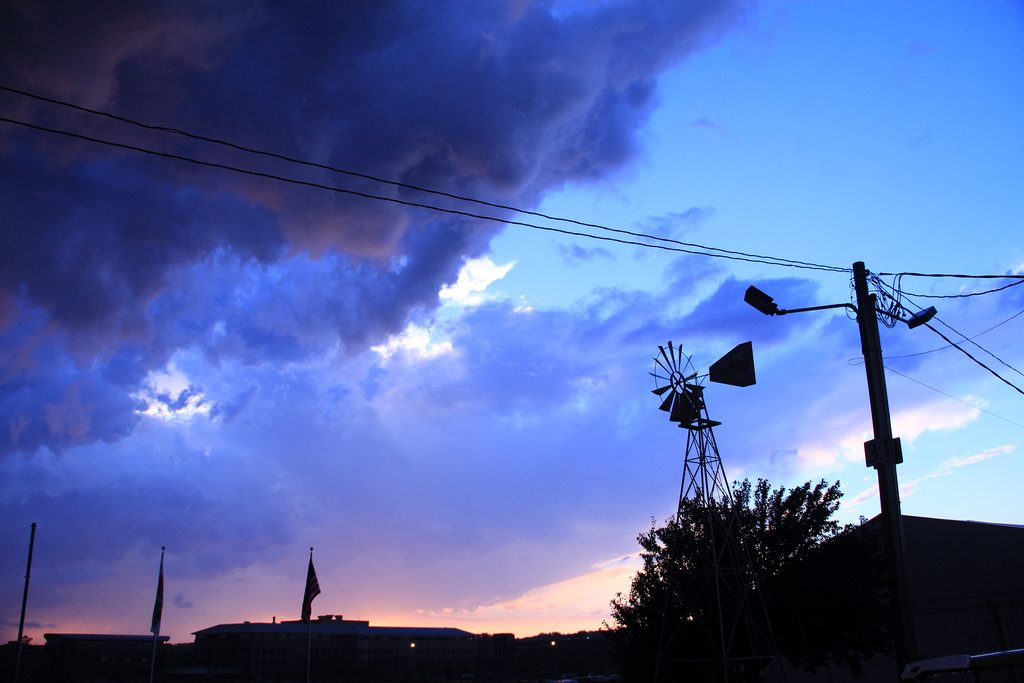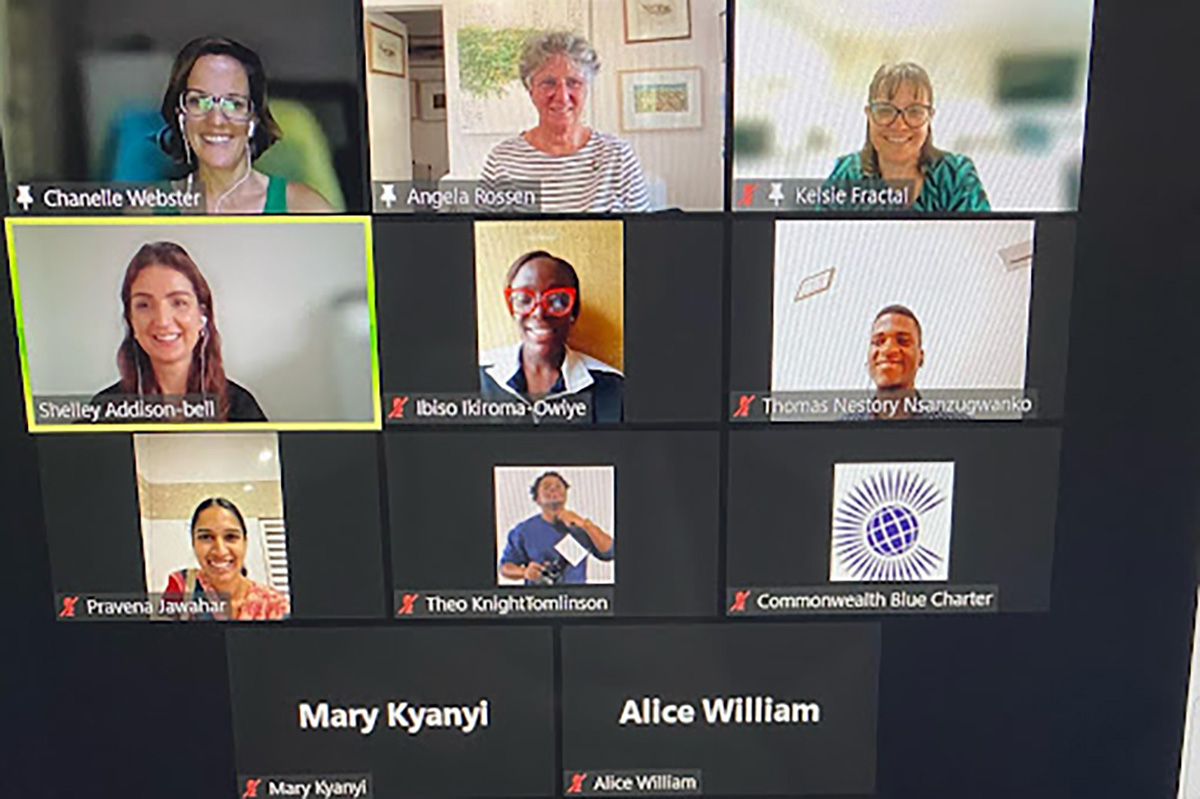“Caribbean leaders must focus on climate change”
May 30th, 2015 Severe weather is hurting the Caribbean economy and environment, writes Advira Shand, 24, a Commonwealth Correspondent from Manchester in Jamaica, as she urges leaders to take action on education and policies that will mitigate the impact of climate change.
Severe weather is hurting the Caribbean economy and environment, writes Advira Shand, 24, a Commonwealth Correspondent from Manchester in Jamaica, as she urges leaders to take action on education and policies that will mitigate the impact of climate change.
It was Ralph Gonzales, the Prime Minister of St. Vincent and the Grenadines, who boldly posited that the threat posed by climate change is not abstract.
“It is not very distant, it is immediate and it is real. And if this matter is the premier existential issue which faces us, it means that we have to take it more seriously and put it at the centre stage of all our developmental efforts,” he said.
However, Caribbean leaders have opted to focus all their attention on muscling major players within the international system to adjust their unwelcome habits. Admittedly, it is of great importance that there is an exponential reduction in the emission of greenhouse gases by industrialized powers such as China and the United States in order to put up a meaningful fight against climate change. Leaders within the Caribbean should, however, also be mindful of the grave need for extensive and effective climate change mitigation efforts within the region. It is this ‘need’ that has fueled my unfaltering belief that Caribbean leaders should now make a united decision to dedicate some of their time and resources to aggressively address domestic climate change issues in an effort to steer the region out of its deadly claws.
The Caribbean region is quite vulnerable to the blistering effects of climate change, mainly because of its location and its unwavering dependence on agriculture and tourism for economic survival. The region is frequently rocked by severe natural disasters brought on by climate change, including droughts, storms and hurricanes. In 2014, according to Robert Pickersgill, Jamaica’s Minister of Water, Land, Environment and Climate Change, Jamaica lost 2,190 hectares of crops valued at US$953.3 million because of a widespread drought. In addition, St. Vincent and the Grenadines has been plagued by a series of major weather events. Since 2010, five of these caused damages amounting to over $600 million. Confronted with these alarming facts, it is quite evident that climate change poses a threat to the region’s populace, food security, major economic activities in agriculture and tourism, and possibly to survival.
Throughout the years, the region has been endowed with financial assistance from a plethora of developed states and international bodies to deal with the crippling effects of climate change and to support adaptation and disaster risk-reduction efforts. However, there has been an upsurge in deafening cries from environmental bodies within the region that leaders are not doing enough to solve the problem of climate change. Many may argue that the cost attached to fighting climate change within the region far exceeds the monies furnished by foreign hands to help with climate change efforts. They may also cite efforts made by Caribbean leaders to address climate change as being sufficient given their ‘limited’ resources. However, as a national of the Caribbean I have been witness to the ‘non- committal’ attitudes towards climate change and the often-times blatant ignorance of the seriousness of climate change among Caribbean leaders. I have no choice but to rally on the side of disgruntled environmentalist within the region.
Making the public aware of the causes of climate change and its debilitating and horrid effects is one of the most salient steps in fighting climate change. However, despite their efforts, Caribbean leaders are failing miserably in this regard. I can honestly posit that in Resource, South Manchester, where I reside, that only a handful of persons are aware of the term ‘climate change’ despite documented efforts made by the Jamaican government to educate the populace about the causes and effects of climate.
Throughout the Caribbean there is an urgent need for the development of policies to bring about marked increase in, and to encourage the use of “renewable energy sources and cleaner, more efficient energy consumption at household, business and industrial levels”. The Jamaica Public Service Company, Jamaica’s sole distributor of electricity, has made some strides in educating the populace about the importance of energy consumption. However, the Jamaican government has failed miserably in educating the public about the need to conserve energy and to utilize green energy sources such as solar power.
In addition, poor agricultural practices and deforestation in certain Caribbean states play a major role in increasing climate change within the region. However, there is much to be done in the region to bring about sustained reduction in deforestation and improper agricultural practices. For example, in Jamaica, individuals are usually furnished with information regarding the negative effects of deforestation and reforestation efforts when ‘Earth Day’ and ‘National Tree Planting Day’ are approaching.
The growth, prosperity and survival of our region is slowing seeping through the cracks carved by climate change. Therefore, Caribbean leaders need to wake out of their untimely and unwelcome slumber and dedicate their efforts to fight against climate change in the region.
References
Brown, D. (2014) Climate change an “existential threat” for the Caribbean. Retrieved on May 18, 2015, www.caribbean360.com
Climate change and mitigation (n.d.). Retrieved on May 18, 2015, from www.mona.uwi.edu
Jamaica drought causes nearly US$1 billion in losses (2014). Retrieved on May 18, 2015, from www.telesurtv.net
photo credit: Storm Over DuPage County Fair via photopin (license)
…………………………………………………………………………………………………
About me:
It is my desire to inspire growth among youths and within the region I inhabit. I have a Bachelor’s degree in International Relations and serve as a Managing Partner at WAGS Construction. It is my intention to undertake graduate studies that will help me in my quest to occupy a position within my country where I can assist in crafting policies that will fuel development within developing states.
…………………………………………………………………………………………………
Opinions expressed in this article are those of the author and do not necessarily represent the views of the Commonwealth Youth Programme. Articles are published in a spirit of dialogue, respect and understanding. If you disagree, why not submit a response?
To learn more about becoming a Commonwealth Correspondent please visit:
http://www.yourcommonwealth.org/submit-articles/commonwealthcorrespondents/
………………………………………………………………………………………………




